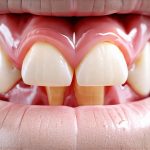Gastroesophageal reflux disease (GERD), often experienced as frequent heartburn, is far more than just an uncomfortable digestive issue. It’s a prevalent condition affecting millions, yet its impact frequently extends beyond the esophagus, subtly and significantly disrupting sleep architecture and contributing to various sleep disorders. Many individuals experiencing GERD symptoms don’t realize the strong link between their digestive health and their ability to achieve restful, restorative sleep. This interconnectedness is often overlooked, leading to misdiagnosis or incomplete treatment plans that fail to address the full spectrum of patient experience. Understanding this relationship is crucial for improving overall quality of life, as chronic sleep deprivation exacerbates GERD symptoms, creating a vicious cycle where digestive distress fuels sleeplessness and vice versa.
The interplay between GERD and sleep disorders isn’t simply about occasional discomfort waking someone up at night. It’s rooted in physiological changes that occur during sleep, and the way those changes interact with reflux patterns. During sleep, several factors increase the likelihood of acid reflux. Sphincter pressure weakens, esophageal clearance – the process of removing acid back into the stomach – slows down, and gastric emptying is delayed. These combined effects make nighttime GERD symptoms more frequent and intense than daytime ones. Furthermore, disrupted sleep negatively impacts the body’s natural stress response and immune function, potentially worsening underlying GERD issues. This creates a challenging scenario where both conditions feed off each other, hindering overall health and well-being. Understanding the role of bile can also contribute to these digestive disturbances.
The Bidirectional Relationship: How GERD Impacts Sleep & Vice Versa
The connection between GERD and sleep disorders is demonstrably bidirectional, meaning each condition can contribute to the development or worsening of the other. GERD frequently disrupts sleep through nocturnal symptoms like heartburn, regurgitation, and even cough related to acid aspiration. These awakenings might be brief enough not to register in conscious memory, leading to feelings of fatigue despite seemingly adequate time in bed – a hallmark of fragmented sleep. The chronic activation of the nervous system due to reflux also prevents deep, restorative sleep stages from being reached. This leaves individuals feeling unrefreshed and vulnerable to daytime sleepiness, reduced cognitive function, and mood disturbances. Meal timing can play a significant role in mitigating these symptoms.
However, it’s not just GERD causing sleep problems; poor sleep can actively worsen GERD symptoms. Sleep deprivation impacts hormone regulation – specifically cortisol levels and melatonin production. Elevated cortisol, the “stress hormone,” increases gastric acid secretion, making reflux more likely. Simultaneously, disrupted melatonin rhythms affect gastrointestinal motility, slowing down digestion and increasing intra-abdominal pressure, both of which contribute to reflux episodes. This creates a feedback loop: poor sleep leads to increased GERD symptoms, further disrupting sleep, and so on.
The types of sleep disorders most commonly associated with GERD include insomnia, obstructive sleep apnea (OSA), and restless legs syndrome (RLS). OSA is particularly concerning as the pressure changes during apneic events can exacerbate reflux, while acid exposure can irritate the airway, potentially worsening OSA symptoms. Addressing one condition without acknowledging the other rarely yields long-term relief; a holistic approach recognizing the interconnectedness is essential for effective management. GERD and sleep apnea often co-exist, creating complex challenges for patients.
The Role of Lifestyle and Management Strategies
Managing both GERD and sleep disorders requires a multi-faceted approach that often begins with lifestyle modifications. Dietary changes are paramount – avoiding trigger foods such as caffeine, alcohol, chocolate, fatty foods, and spicy meals can significantly reduce reflux frequency. Elevating the head of the bed by 6-8 inches using blocks or a wedge pillow helps prevent nighttime reflux, utilizing gravity to keep stomach acid where it belongs. Smaller, more frequent meals are also preferable to large meals which increase pressure on the lower esophageal sphincter. Weight management is crucial as obesity increases intra-abdominal pressure and worsens GERD symptoms. Role of weight in managing this condition cannot be overstated.
Beyond diet, sleep hygiene plays a critical role. Establishing a regular sleep schedule, creating a relaxing bedtime routine, ensuring a dark, quiet, and cool sleep environment, and avoiding screen time before bed can all improve sleep quality. For those with diagnosed OSA, consistent use of CPAP therapy is vital not only for breathing but also for reducing GERD symptoms associated with pressure changes during sleep. Finally, stress management techniques like meditation, yoga, or deep breathing exercises can help lower cortisol levels and promote better sleep. Pharmacological interventions – proton pump inhibitors (PPIs) or H2 receptor antagonists – might be necessary to control acid production, but they should always be used under the guidance of a healthcare professional as long-term use carries potential risks. Understanding antacids can provide temporary relief from symptoms.
Diagnosing the Connection: What Tests Should Be Considered?
Pinpointing the link between GERD and sleep disorders often requires a comprehensive diagnostic evaluation. While self-reported symptoms are important starting points, objective testing is necessary to confirm diagnoses and guide treatment decisions. A typical workup might involve several steps. First, endoscopy can visually assess the esophagus for damage caused by acid reflux and rule out other potential causes of heartburn. This often includes biopsies to check for Barrett’s esophagus, a precancerous condition.
Next, esophageal pH monitoring – either ambulatory or impedance-pH monitoring – measures the amount of acid exposure in the esophagus over a 24-hour period. This provides objective evidence of reflux and helps determine if symptoms correlate with actual acid events. For suspected OSA, polysomnography (sleep study) is essential; it monitors brain waves, heart rate, breathing patterns, and oxygen levels during sleep to diagnose sleep apnea and assess its severity. Furthermore, a thorough sleep history including questionnaires about sleep quality, daytime sleepiness, and snoring can provide valuable clues.
Finally, evaluating for RLS may involve a neurological assessment and potentially a sleep study focused on leg movements. It’s important to remember that these tests aren’t always necessary for every patient; the specific diagnostic pathway should be tailored to individual symptoms and clinical presentation. The goal is not just to identify GERD or a sleep disorder, but to understand how they are interacting and influencing each other.
Understanding Nocturnal Reflux: Why Is It Different?
Nocturnal reflux – acid reflux occurring during sleep – differs significantly from daytime reflux in several key ways. As mentioned earlier, physiological changes that occur naturally during sleep create a more favorable environment for reflux. The lower esophageal sphincter (LES), the muscle that prevents stomach acid from flowing back into the esophagus, relaxes during sleep, making it easier for acid to escape.
Furthermore, postural changes when lying down reduce gravitational force, diminishing the natural barrier against reflux. Esophageal clearance mechanisms – peristalsis and saliva production – are also less effective during sleep, leading to prolonged exposure of the esophageal lining to acid. This explains why nighttime symptoms often feel more intense and cause greater disruption than daytime heartburn. Nocturnal reflux can be silent, meaning it doesn’t necessarily produce typical heartburn symptoms but still causes damage to the esophagus and airway. This silent reflux can be particularly dangerous, as it may go unnoticed for extended periods, leading to complications like asthma or chronic cough. Chewing gum might offer temporary relief for some patients.
The Impact of Medication: A Double-Edged Sword?
While medications like PPIs and H2 receptor antagonists are often effective in reducing acid production and alleviating GERD symptoms, they aren’t without potential drawbacks – especially concerning sleep. Some studies suggest that long-term PPI use may be associated with sleep disturbances, although the mechanisms are not fully understood. It’s hypothesized that changes in gut microbiome composition induced by PPIs might affect melatonin production or neurotransmitter balance, potentially disrupting sleep architecture.
Additionally, certain medications used to treat GERD can have direct side effects on sleep. For example, some antihistamines used for heartburn relief can cause drowsiness, while others may be stimulating and interfere with sleep onset. It’s also important to consider that treating GERD symptoms effectively can improve sleep quality by reducing nocturnal awakenings – demonstrating the complex interplay between medication and both conditions. Therefore, a careful evaluation of medications is crucial, considering individual patient responses and potential side effects. A collaborative approach involving a gastroenterologist and a sleep specialist can help optimize treatment plans to minimize adverse effects and maximize benefits for overall health and well-being. FODMAPs should also be considered as potential triggers.


















